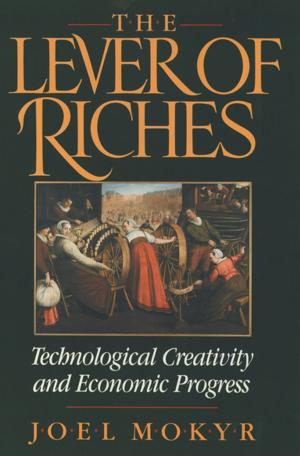Johannes Kepler
And the New Astronomy
Kids, Natural World, Astronomy, People and Places, Biography, Non-Fiction, Science and Technology| Author: | James R. Voelkel | ISBN: | 9780190287740 |
| Publisher: | Oxford University Press | Publication: | October 11, 2001 |
| Imprint: | Oxford University Press | Language: | English |
| Author: | James R. Voelkel |
| ISBN: | 9780190287740 |
| Publisher: | Oxford University Press |
| Publication: | October 11, 2001 |
| Imprint: | Oxford University Press |
| Language: | English |
Johannes Kepler (1571-1630) is remembered, along with Copernicus and Galileo, as one of the greatest Renaissance astronomers. A gifted analytical thinker, he made major contributions to physics, astronomy, and mathematics. Kepler was trained as a theologian, yet did not hesitate to challenge church doctrine and prevailing scientific beliefs by supporting the theory of a Sun-centered solar system. As Imperial Mathematician to the Holy Roman Emperor, he analyzed the precise observations of the heavens that his predecessor, the great astronomer Tycho Brahe, had recorded. The book follows the ingenious scientist along the difficult pathway from raw data to his monumental discovery--the three Laws of Planetary Motion. Kepler also made fundamental contributions to optical theory, including a correct description of the function of the eye and a new and improved telescope design. His unique Rudolfine Tables, universal calculations of planetary motion, were unprecedented in their accuracy. James Voelkel vividly describes these scientific achievements, providing enough background in astronomy and geometry so even beginners can follow Kepler's thinking and enjoy this book. Equally captivating is his account of Kepler's tumultuous life, plagued by misery, disease, war, and fervent religious persecution. Oxford Portraits in Science is an ongoing series of scientific biographies for young adults. Written by top scholars and writers, each biography examines the personality of its subject as well as the thought process leading to his or her discoveries. These illustrated biographies combine accessible technical information with compelling personal stories to portray the scientists whose work has shaped our understanding of the natural world.
Johannes Kepler (1571-1630) is remembered, along with Copernicus and Galileo, as one of the greatest Renaissance astronomers. A gifted analytical thinker, he made major contributions to physics, astronomy, and mathematics. Kepler was trained as a theologian, yet did not hesitate to challenge church doctrine and prevailing scientific beliefs by supporting the theory of a Sun-centered solar system. As Imperial Mathematician to the Holy Roman Emperor, he analyzed the precise observations of the heavens that his predecessor, the great astronomer Tycho Brahe, had recorded. The book follows the ingenious scientist along the difficult pathway from raw data to his monumental discovery--the three Laws of Planetary Motion. Kepler also made fundamental contributions to optical theory, including a correct description of the function of the eye and a new and improved telescope design. His unique Rudolfine Tables, universal calculations of planetary motion, were unprecedented in their accuracy. James Voelkel vividly describes these scientific achievements, providing enough background in astronomy and geometry so even beginners can follow Kepler's thinking and enjoy this book. Equally captivating is his account of Kepler's tumultuous life, plagued by misery, disease, war, and fervent religious persecution. Oxford Portraits in Science is an ongoing series of scientific biographies for young adults. Written by top scholars and writers, each biography examines the personality of its subject as well as the thought process leading to his or her discoveries. These illustrated biographies combine accessible technical information with compelling personal stories to portray the scientists whose work has shaped our understanding of the natural world.















